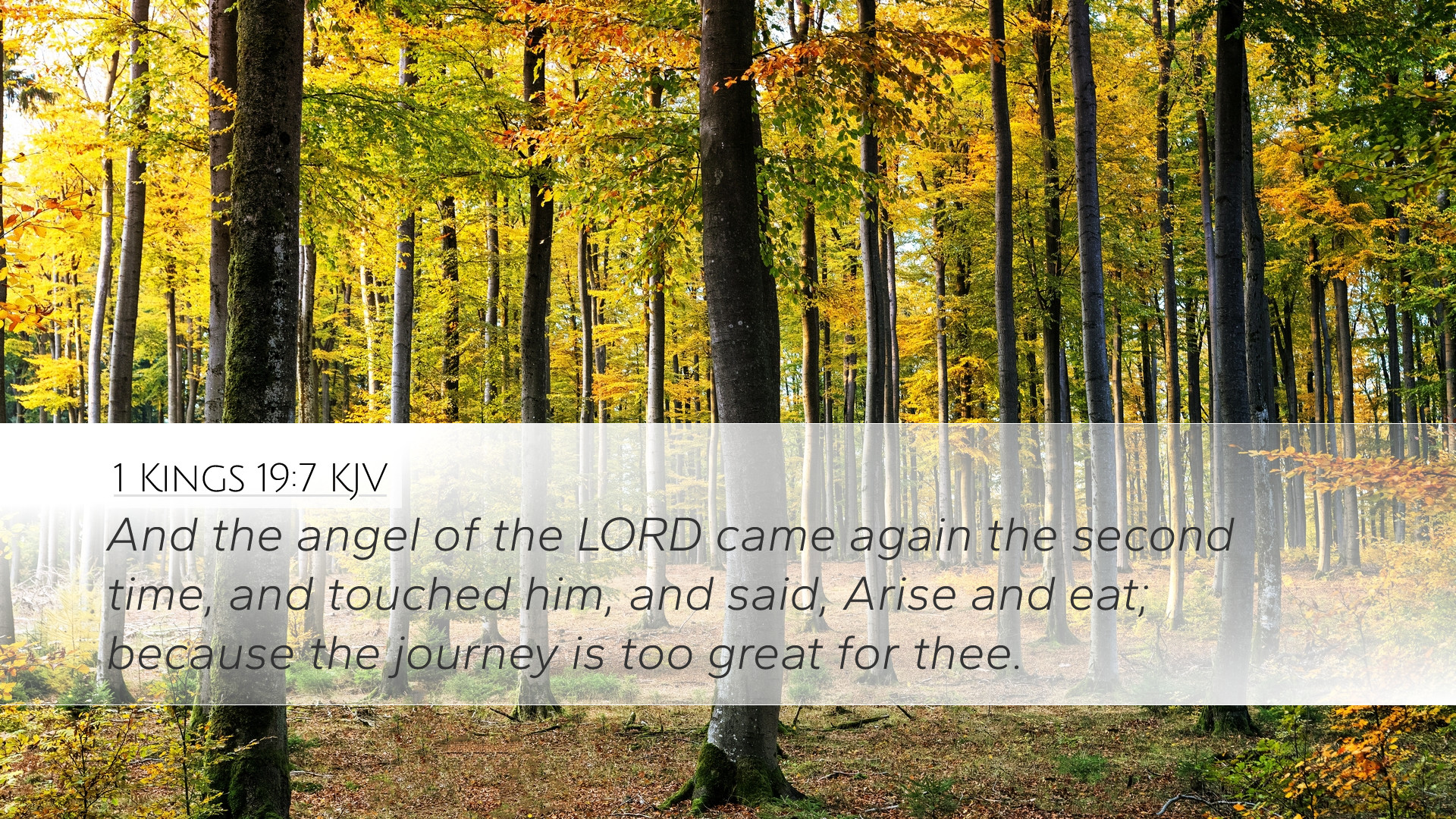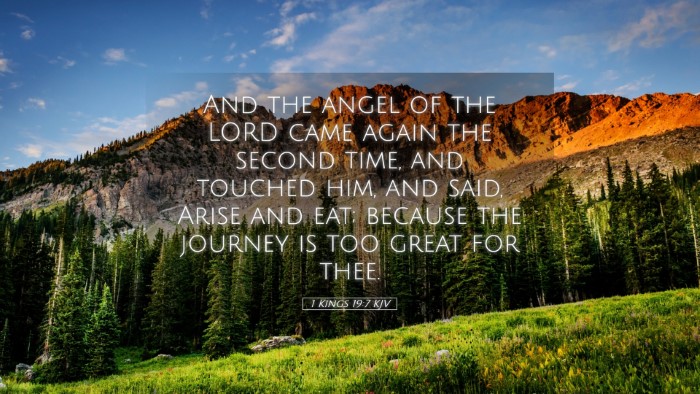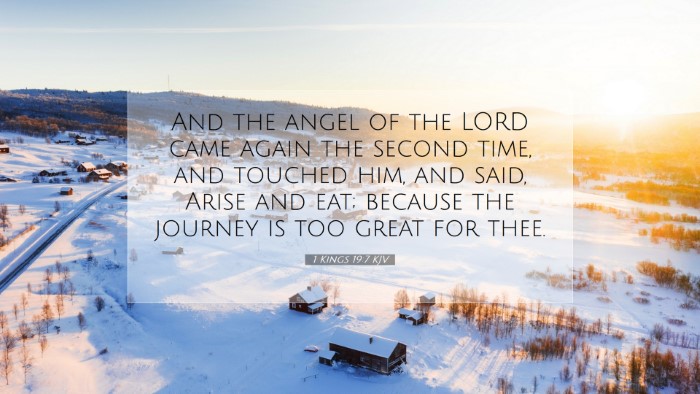Old Testament
Genesis Exodus Leviticus Numbers Deuteronomy Joshua Judges Ruth 1 Samuel 2 Samuel 1 Kings 2 Kings 1 Chronicles 2 Chronicles Ezra Nehemiah Esther Job Psalms Proverbs Ecclesiastes Song of Solomon Isaiah Jeremiah Lamentations Ezekiel Daniel Hosea Joel Amos Obadiah Jonah Micah Nahum Habakkuk Zephaniah Haggai Zechariah Malachi1 Kings 19:7
1 Kings 19:7 KJV
And the angel of the LORD came again the second time, and touched him, and said, Arise and eat; because the journey is too great for thee.
1 Kings 19:7 Bible Commentary
Commentary on 1 Kings 19:7
1 Kings 19:7 states: "And the angel of the Lord came again the second time, and touched him, and said, Arise and eat; because the journey is too great for thee."
Context of the Passage
This verse falls within the account of Elijah's discouragement following his encounter with Queen Jezebel after the victory at Mount Carmel. After a miraculous demonstration of God's power, Elijah flees into the wilderness, succumbing to despair. Here, the divine intervention of God becomes evident as He provides for Elijah in his time of need.
Insights from Commentaries
Various commentators provide profound insights into this passage. Below are some synthesized thoughts from Matthew Henry, Albert Barnes, and Adam Clarke.
-
Matthew Henry's Perspective
Henry emphasizes God's compassionate care for Elijah. He notes that the Lord does not rebuke Elijah for his flight but rather attends to his physical and spiritual needs. The angel's touch signifies a tender ministering of God's grace, suggesting that God understands human frailty. Henry interprets the command to "Arise and eat" as an invitation to rejuvenation and a call to prepare for the future ministry that lies ahead.
-
Albert Barnes' Interpretation
Barnes links this passage to the broader theme of God's provision. He draws parallels to how God provided manna to the Israelites in the desert, highlighting the idea that God cares for those who serve Him. He emphasizes that the "journey is too great" not only refers to the physical journey but also the spiritual challenges that Elijah faces. Barnes suggests that this serves as a reminder that God equips His servants for the tasks ahead, particularly in moments of exhaustion and distress.
-
Adam Clarke's Analysis
Clarke delves into the implications of the angel's visit. He notes that the repetition of the angel’s appearance underscores the urgency of God’s message. Clarke also points out the significance of the phrase "the journey is too great for thee," suggesting that it acknowledges the magnitude of the task Elijah must undertake and the necessity of divine support. Clarke encourages readers to recognize their own limits and the importance of relying on God’s strength in times of personal struggle.
Spiritual Lessons from the Passage
From this verse and the surrounding context, several spiritual lessons emerge:
- God’s Compassion: God recognizes our weariness and responds with grace. He meets us in our lowest moments, offering physical and spiritual sustenance.
- The Importance of Rest: The instruction to eat and rest reveals the necessity of self-care in ministry. Even the prophet Elijah, a man of great faith, needed renewal.
- Divine Support for Great Tasks: When faced with overwhelming challenges, it is crucial to remember that we do not journey alone. God equips us for the calls He places on our lives.
- Listening for God’s Voice: In despair, it is vital to attune ourselves to God’s communication. Like Elijah, we must be open to divine guidance even in silence.
Conclusion
1 Kings 19:7 highlights a transformative moment in Elijah's life where God ministers to him in a profound way. This passage offers enduring truths for pastors, students, theologians, and scholars alike — it calls all believers to recognize God's tender care and provision in both physical and spiritual dimensions, especially during the arduous journeys of faith. Understanding the depths of this verse allows us to draw nearer to God's heart, encouraging reliance on His strength and nourishment for every aspect of our lives.


